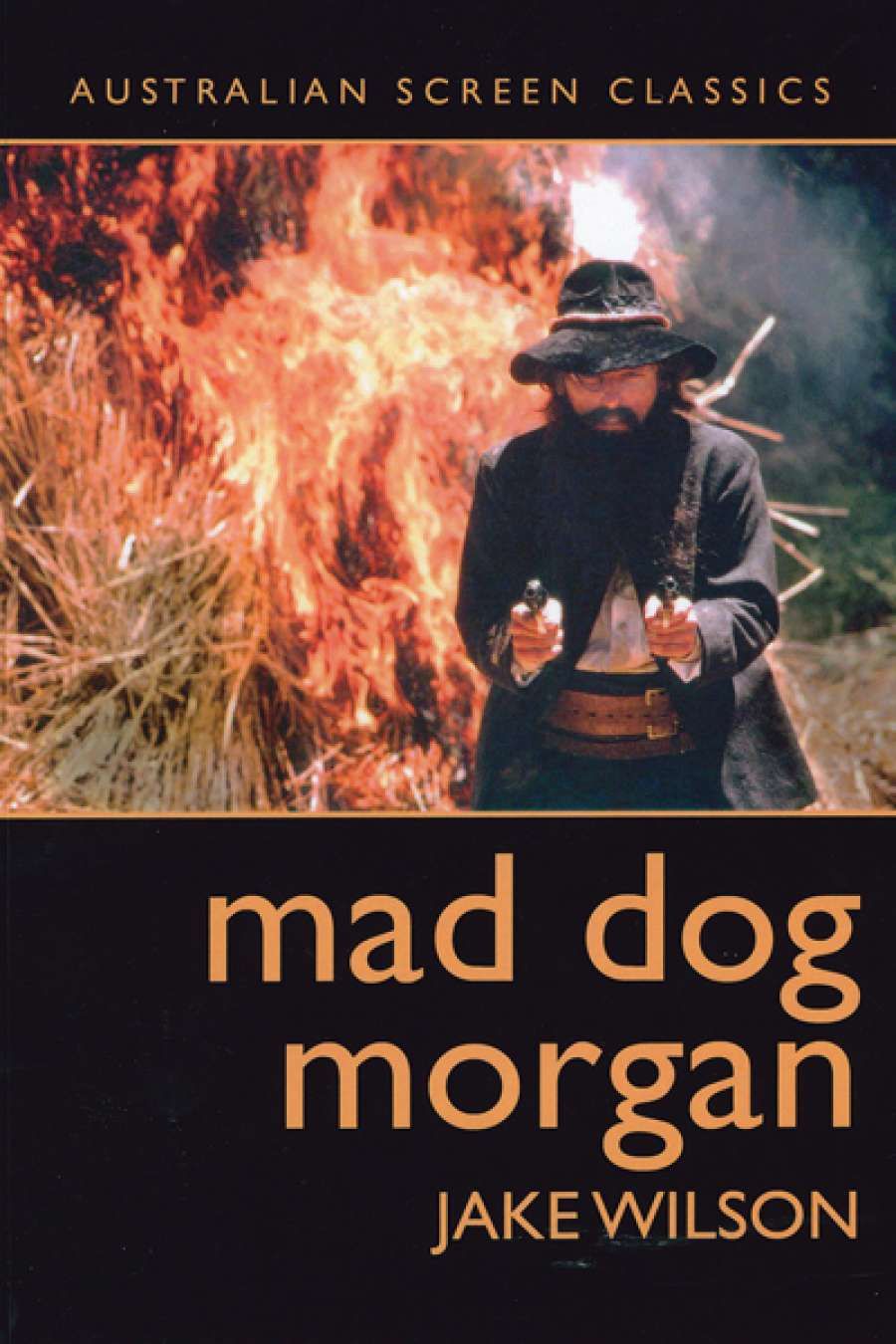
- Free Article: No
- Contents Category: Film
- Custom Article Title: Brian McFarlane reviews 'Mad Dog Morgan' by Jake Wilson
- Review Article: Yes
- Online Only: No
- Book 1 Title: Mad Dog Morgan
- Book 1 Biblio: Australian Screen Classics, $16.99 pb, 98 pp, 9781925005202
The answer is the film itself, and Wilson's account of its sequences, in a series of short chapters from 'The Morgan Legend' to 'Morgan Restored', maintains a balance between careful observation of what is on the screen and the wider resonances it invokes. For instance, he records vividly a moment when Hopper/Morgan, having inhaled from an opium pipe, gazes upward, 'his face half-bathed in the sunlight that filters through the slats of the opium den'. He goes on to suggest how 'the sequence jolts us out of the narrative, as an extra-textual nod to Hopper's hippie persona', intensifying our notion of Morgan as a disruptive presence in colonial Australia. The choice of Hopper for the role seems, from the outset, to have been a way of highlighting Morgan's outsider status, 'using the power of stardom to stage a collision between cultures and eras', and succeeding where Tony Richardson's 1970 film of Ned Kelly, starring another iconoclastic figure, Mick Jagger, had failed.
Of another sequence when the Aboriginal Billy (David Gulpilil) cares for the wounded Morgan, or when he teaches Morgan how to throw a boomerang, Wilson persuasively notes how these moments reflect on 'the historical reality of genocide in Australia'. It is in dealing with the complex associations of such scenes that his real strength lies: it may be easy enough to detail what is happening at any given stage, in terms of mise-en-scène or editing; it is radically more demanding to reflect on what it means for the film's overall narrative pattern, let alone for the broader social context of the film's production.
The book's final chapter plays provocatively with ideas of 'exploitation' and 'badness' in cinema, in relation to how Mad Dog Morgan may have related to the more decorous exemplars of the 1970s revival. Not many forgotten films have been restored to filmgoers' notice with such eloquence and perception as to make one anxious to see them again. Wilson writes of a 1976 article that 'remains the best analysis of Mad Dog written by anybody'. Till now, I'd say.


Comments powered by CComment